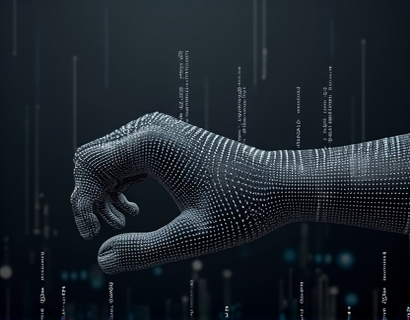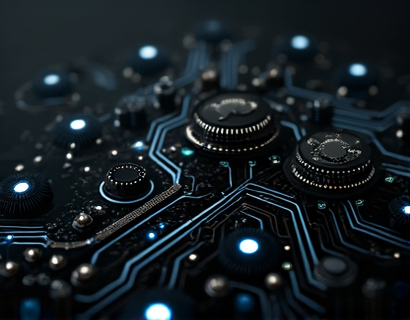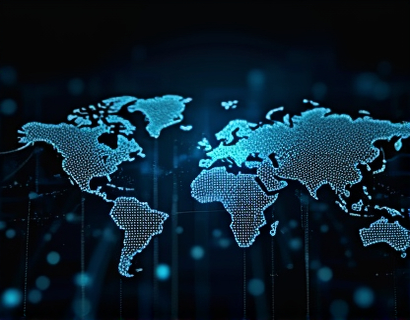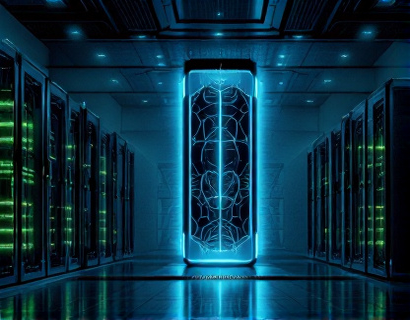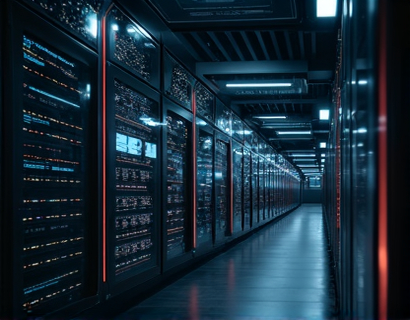Autonomous AI Agents: Revolutionizing Business Efficiency Through Multi-Chain and Cross-Technology Automation
In the rapidly evolving digital landscape, businesses are constantly seeking innovative solutions to enhance efficiency, reduce costs, and gain a competitive edge. One of the most transformative advancements in this realm is the emergence of Autonomous AI Agents, which are redefining the way companies operate by seamlessly integrating across multiple blockchains and technologies. These AI-driven agents are not just automating routine tasks; they are optimizing complex workflows and enabling businesses to achieve unprecedented levels of productivity and agility.
The concept of Autonomous AI Agents revolves around the creation of intelligent, self-operating entities that can perform a wide range of functions without human intervention. These agents leverage advanced AI algorithms, machine learning, and natural language processing to understand, adapt to, and execute tasks in dynamic environments. By operating autonomously across various blockchains and technologies, these agents facilitate seamless communication and data exchange, breaking down silos and enhancing interoperability.
Multi-Chain Integration
One of the key strengths of Autonomous AI Agents is their ability to function across multiple blockchain networks. Traditional blockchain systems often operate in isolation, limiting their potential and creating fragmented ecosystems. Autonomous AI Agents bridge this gap by enabling cross-chain interactions, allowing data and assets to flow smoothly between different blockchains. This multi-chain capability is crucial for businesses that need to leverage the unique features of various blockchain platforms, such as Ethereum for smart contracts, Hyperledger for enterprise solutions, and Binance Smart Chain for cost-effective transactions.
The integration of AI agents across multiple blockchains ensures that businesses can harness the benefits of decentralization, security, and transparency while maintaining operational efficiency. For instance, an AI agent can initiate a transaction on one blockchain, automatically verify and process the necessary smart contracts on another, and update the status on a third blockchain, all without human intervention. This seamless workflow not only speeds up processes but also reduces the risk of errors and fraud.
Cross-Technology Automation
Beyond blockchain, Autonomous AI Agents are designed to work across a wide array of technologies, including IoT devices, cloud platforms, and traditional enterprise systems. This cross-technology automation is essential for modern businesses that rely on diverse technological infrastructures. By integrating AI agents that can communicate and coordinate across these different systems, companies can create a unified, intelligent ecosystem that operates with optimal efficiency.
For example, in a manufacturing setting, an AI agent can monitor real-time data from IoT sensors to optimize production lines, predict maintenance needs, and adjust resource allocation dynamically. Simultaneously, the agent can interact with cloud storage solutions to manage data logs and ensure compliance with regulatory standards. This holistic approach ensures that all components of the business work in harmony, driving overall productivity and reducing operational costs.
Advanced AI Solutions
The AI algorithms powering these agents are at the forefront of technological innovation. These agents employ a combination of machine learning, deep learning, and cognitive computing to perform tasks that traditionally required human intervention. Machine learning enables the agents to learn from data, improving their performance over time and adapting to new scenarios. Deep learning, a subset of machine learning, allows for the analysis of complex patterns and decision-making in scenarios with high variability and uncertainty.
Cognitive computing takes this a step further by simulating human thought processes, enabling the agents to understand context, make inferences, and solve problems creatively. This level of intelligence is particularly valuable in industries such as finance, healthcare, and logistics, where complex decision-making and real-time analysis are critical. By automating these processes, businesses can focus on strategic initiatives while leaving the operational details to the AI agents.
Enhancing Business Processes
The impact of Autonomous AI Agents on business processes is profound. These agents can automate a wide range of tasks, from data entry and report generation to supply chain management and customer service. By taking over repetitive and time-consuming tasks, AI agents free up human resources to focus on higher-value activities that require creativity, critical thinking, and emotional intelligence.
In supply chain management, for instance, AI agents can monitor inventory levels, predict demand, and optimize logistics in real-time. They can automatically place orders, manage supplier relationships, and ensure compliance with regulatory requirements. This level of automation not only reduces delays and errors but also enhances transparency and traceability throughout the supply chain.
In customer service, AI agents can provide 24/7 support, handling inquiries, resolving issues, and personalizing customer experiences. By leveraging natural language processing and sentiment analysis, these agents can understand customer needs and preferences, offering tailored solutions and improving customer satisfaction.
Improving Decision-Making
One of the most significant benefits of Autonomous AI Agents is their ability to enhance decision-making processes. By analyzing vast amounts of data from various sources, these agents can provide insights and recommendations that humans might overlook. AI agents can identify trends, predict outcomes, and simulate scenarios, enabling businesses to make informed, data-driven decisions.
In the financial sector, for example, AI agents can analyze market data, economic indicators, and company performance metrics to forecast trends and identify investment opportunities. In healthcare, they can process patient data, medical research, and treatment outcomes to suggest optimal care plans and predict patient outcomes. These insights not only improve decision quality but also accelerate the decision-making process, giving businesses a competitive advantage.
Ensuring Security and Compliance
Security and compliance are paramount in today's business environment, and Autonomous AI Agents are designed with these considerations in mind. These agents incorporate advanced security protocols to protect data and prevent unauthorized access. They can detect and respond to threats in real-time, ensuring the integrity and confidentiality of sensitive information.
Compliance is another critical area where AI agents excel. They can be programmed to adhere to various regulatory standards and industry guidelines, automatically updating processes to stay compliant as regulations evolve. This is particularly important in sectors like finance, healthcare, and manufacturing, where non-compliance can result in significant penalties and reputational damage.
Challenges and Considerations
While the benefits of Autonomous AI Agents are clear, there are several challenges and considerations that businesses should be aware of. One of the primary concerns is the initial investment required to implement these advanced systems. However, the long-term savings and efficiency gains often justify the upfront costs.
Another challenge is the need for skilled professionals who can develop, deploy, and manage AI agents effectively. Businesses must invest in training and hiring talent with expertise in AI, machine learning, and blockchain technology. Additionally, there is a need for robust governance frameworks to ensure that AI agents operate ethically and transparently, addressing issues such as bias and accountability.
Future Prospects
The future of Autonomous AI Agents looks promising, with ongoing advancements in AI, blockchain, and other technologies poised to enhance their capabilities further. As these agents become more sophisticated, they will be able to handle even more complex tasks and integrate with an expanding array of systems and devices. The convergence of AI, blockchain, and the Internet of Things (IoT) will create new opportunities for businesses to innovate and optimize their operations.
Moreover, the increasing adoption of AI-driven automation across industries will drive down costs and make these solutions more accessible to a broader range of businesses. As the technology matures, we can expect to see more standardized frameworks and best practices, making it easier for companies to implement and benefit from Autonomous AI Agents.
In conclusion, Autonomous AI Agents are at the forefront of a new era in business efficiency. By seamlessly integrating across multiple blockchains and technologies, these agents are transforming the way businesses operate, automating complex tasks, and optimizing workflows. As companies continue to embrace this technology, they will not only enhance their operational efficiency but also gain a significant competitive edge in the digital landscape.









